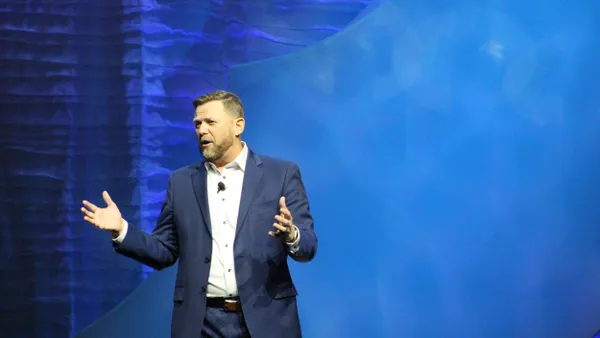Dive Brief:
- A California jury ruled on Friday that Biosense Webster, a subsidiary of Johnson & Johnson, broke antitrust rules by withholding clinical support to hospitals using reprocessed catheters.
- The lawsuit was filed by medical device reprocessing firm Innovative Health in 2019. The jury awarded Innovative Health more than $147 million in damages, according to court documents. Law360 first reported the verdict on Friday.
- The Association of Medical Device Reprocessors said in a Sunday statement that the decision is a “victory for America’s hospitals, providers, patients, and the environment.” A Johnson & Johnson spokesperson wrote in an emailed statement that the company disagrees with the jury’s decision and is evaluating all legal options, including appeal.
Dive Insight:
Trade group AMDR said the lawsuit brings “potentially anticompetitive" tactics by original equipment manufacturers under closer examination.
“For too long, Johnson & Johnson has used tying arrangements and other tactics to interfere with fair competition from lower-cost, FDA-regulated, reprocessed ‘single-use’ devices,” AMDR CEO Daniel Vukelich said in a statement.
Scottsdale, Arizona-based Innovative Health first filed the case against Biosense Webster in 2019, claiming the company has a monopoly on heart-mapping catheters. In the complaint, Innovative Health claimed that Biosense Webster tied clinical support to purchases of high-density mapping catheters and ultrasound catheters used with its Carto 3 cardiac mapping system.
Biosense Webster accounts for more than half of cardiac mapping systems installed in the U.S., according to the complaint. Biosense Webster received FDA clearance to sell catheters for single use by hospitals, and Innovative Health received FDA clearance to reprocess and sell the catheters one to three additional times before disposal. Reprocessed devices are equipment that has been used in a procedure and have been disinfected or sterilized.
A technician must operate the cardiac mapping system software when a physician performs a procedure. In the past, system manufacturers had provided training for hospital staff to provide their own case coverage, but Biosense Webster has run a program for more than 10 years where clinical account specialists provide case coverage free of charge, according to the complaint. Innovative Health alleges in the complaint that Biosense Webster had a written policy of refusing to provide case coverage by its account specialists for these catheters when reprocessed by competitors.
Other medical device manufacturers, such as Abbott, provide clinical support for their mapping machines regardless of who provides the catheters used for the procedure, according to the complaint. Innovative Health sought damages and injunctive relief.
J&J is reviewing the verdict.
“We continue to believe our actions are pro-competitive and meet our responsibility to ensure patient safety and product performance,” a J&J spokesperson wrote in a statement.













